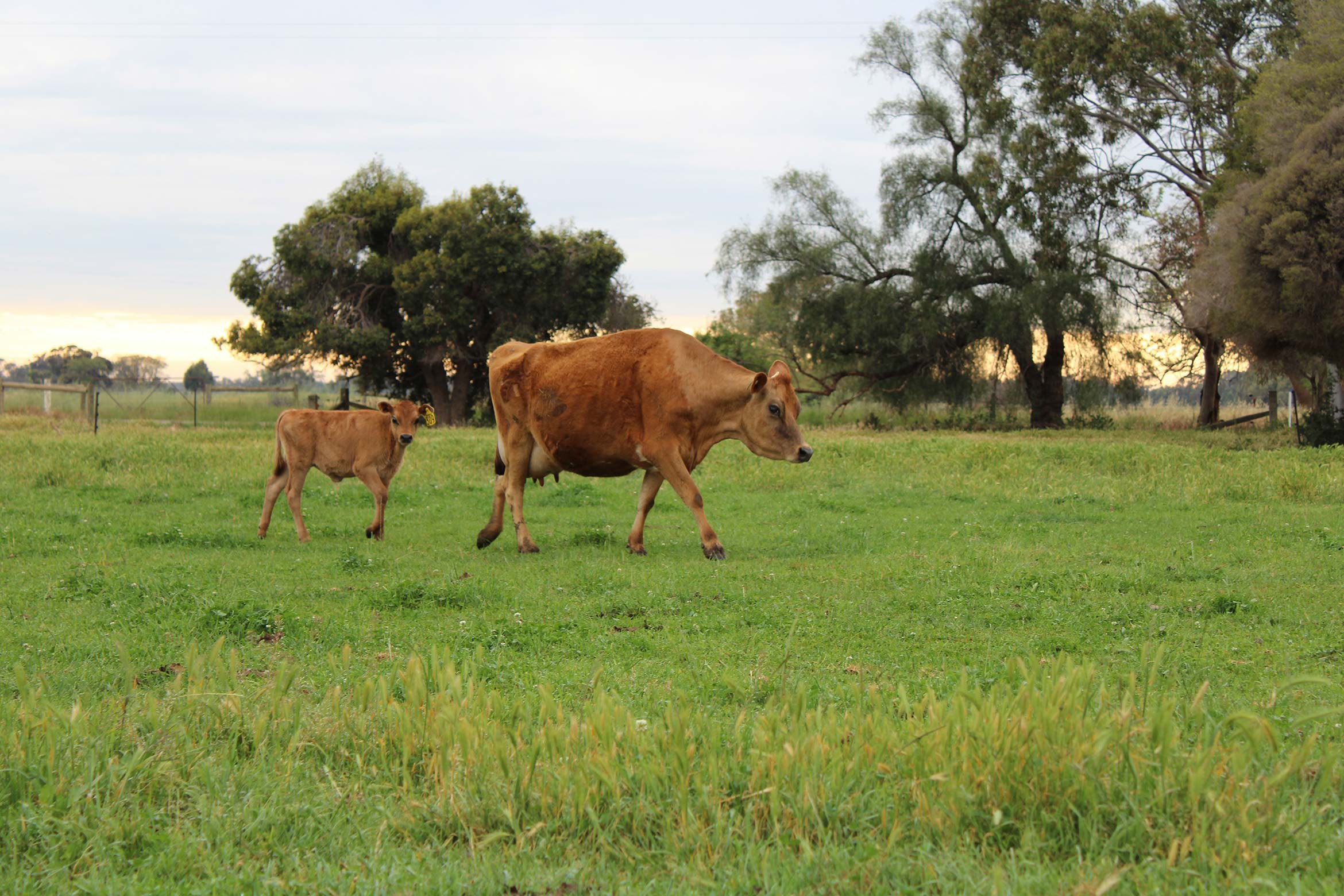
Farm Update: Our calves now stay with their mothers
Our calves now stay with their mothers
It's been a while since our last farm update, but that's not to say there hasn't been a lot going on at our dairy farm. We've been doing a huge amounts of work on regenerating our pastures, and one really encouraging update is that we now keep all our calves with their mothers (unless there are any health issue with either cow or calf).
It's a process we'd wanted to try for a while, in a bid to keep improving our farming practises and to keep our cows even happier. We've been trialing the process since June this year. Read on to hear how it's going:
In the past (and at most dairy farms)
- Calves stayed with mothers for around 48hrs, assuming there were no complications at birth
- Calves were then removed from their mothers and fed twice a day by the bottle with approx. 4 to 5lt of milk per calf per day for up to 12 weeks+ (size and health being the most important goal before moving them out of pens)
- Like any separation of cow/calf, there are 3 or 4 days of unpleasant days for both mother and baby
What we're doing now:
- Calves remain with their mother unless there are any health issue with either cow or calf. We graze new mums and calves in one of 4 paddocks near the dairy.
- While cows are being milked, the calves sit and wait in the dairy laneway, there is no stress shown by calf and cow, they see each other and know the process. After milking the cow and calf both return to paddock.
- We're finding that calves which have stayed with their mothers are very strong and fit from day one - by week 8 most are like 20 week old calves prior to this process.
- We do still seperate the calves and cows now at the 8 - 10 week mark or based on size and health. The first 3 to 4 days of separation are hard, but to make the process easier for mum and calf, we keep them near the dairy and leave an older cow with them which seems to help them settle.
- New calves quickly watch and learn, and are eating grass within 6 days.
There is a downside for us in terms of production, as many 1st time mums produce low volumes but as we are only producing milk for ourselves, we prefer to try this way which is better for the cows rathe than pushing for production volumes. As always, these processes are always a work in process and we continue to tweak and tailer things the best we can, but for now we're delighted with how both the claves and the mothers are responding.






